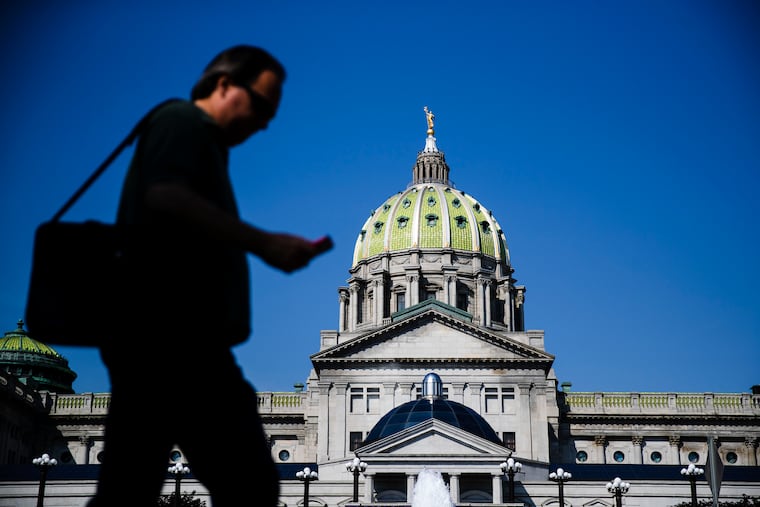Pennsylvania House bill seeks to prop up gun-rights groups like NRA | Opinion
One of several gun bills approved by the state's House Judiciary Committee last week allows gun-interest groups to sue local governments that pass gun-related ordinances.

Sometimes, the goal sought by a piece of legislation is clear. Sometimes it isn’t. Take House Bill 1066, which was just one of several bills approved last week by the Pennsylvania House Judiciary Committee that could weaken gun reforms in the state. It takes a very close reading of HB 1066 to understand its aim: Scare Pennsylvania towns away from addressing the local issues surrounding firearms.
One section states — and bear with the jargon: A person adversely affected by any manner of ordinance, resolution, rule, practice or other action promulgated or enforced by a COUNTY, MUNICIPALITY OR TOWNSHIP in violation of subsection (a) or 53 Pa.C.S. § 306(a) (relating to regulation of firearms and ammunition) . . . may seek declarative and injunctive relief and the actual damages attributable to the violation in an appropriate court.
A later paragraph says the court “shall award reasonable expenses to the person adversely affected” if they succeed on their claim, or if the township revokes their ordinance after the claim is filed.
If you aren’t an attorney (and maybe even if you are), your eyes have glazed over, right? It is not apparent on its face why Pennsylvania citizens should care about this language. As a professor at Villanova University’s Charles Widger School of Law who teaches procedure, my first-year law students and I spend a great deal of time considering such “legalese.” There is quite a lot to unpack in this Bill, but let me focus on two key points.
First, when law students see the above language, they ask: “Aha! Who counts as a ‘person adversely affected?’" According to HB 1066, that includes not just individuals, but also: “A membership organization, the members of which include” a person who may legally possess firearm. This means that a “membership organization” from outside of PA may file a case against one of our townships, simply because the township enacted a firearm ordinance. What’s an example of such a “membership organization?” The first that comes to my mind is the National Rifle Association.
As Representative Mark Keller, the sponsor of HB 1066, wrote in a March statement, the purpose of this legislation is to deter local governments from enacting firearm ordinances. To be clear, Pennsylvania law already prohibits this. HB 1066 seeks to add further deterrence. How to implement this deterrence? Scare towns with the fear of being sued and having to pay large legal fees. Anyone who successfully challenges an ordinance is entitled to reimbursement of their costs and attorneys’ fees. Now, you might be thinking, “Attorneys’ fees? You didn’t say that before.” You would be correct. The availability of attorneys’ fees isn’t mentioned until “reasonable expenses" is defined late in the bill.
This leads me to my second point. This is not standard for lawsuits in this country. The usual rule is that parties pay their own attorneys’ fees, even if they win. This is so ingrained in our system it is known as the “American Rule.” There are exceptions, to be sure. Sometimes, a party may have to pay the other side’s attorneys’ fees as a sanction for misbehavior. Certain federal statutes allow fee-shifting. But the norm remains that each party pays their own attorneys’ fees. HB 1066 is an exception to the American Rule.
Law professors love hypotheticals. Here’s mine: Smalltown passes an ordinance to require a firearm owner to report a lost or stolen firearm within 72 hours. The National Firearm Group sues Smalltown because this ordinance regulates firearms. If the National Firearm Group wins the case, or if Smalltown revokes the ordinance after the claim is filed, Smalltown will be required to pay the attorneys’ fees and expenses of the membership organization.
Once you put all the pieces of the puzzle together, the picture is clear. HB 1066 will allow outside groups, like the NRA, to get paid for suing Pennsylvania towns trying to deal with the local issues facing their communities.
Ann Juliano is a professor of law at Villanova University’s Charles Widger School of Law.